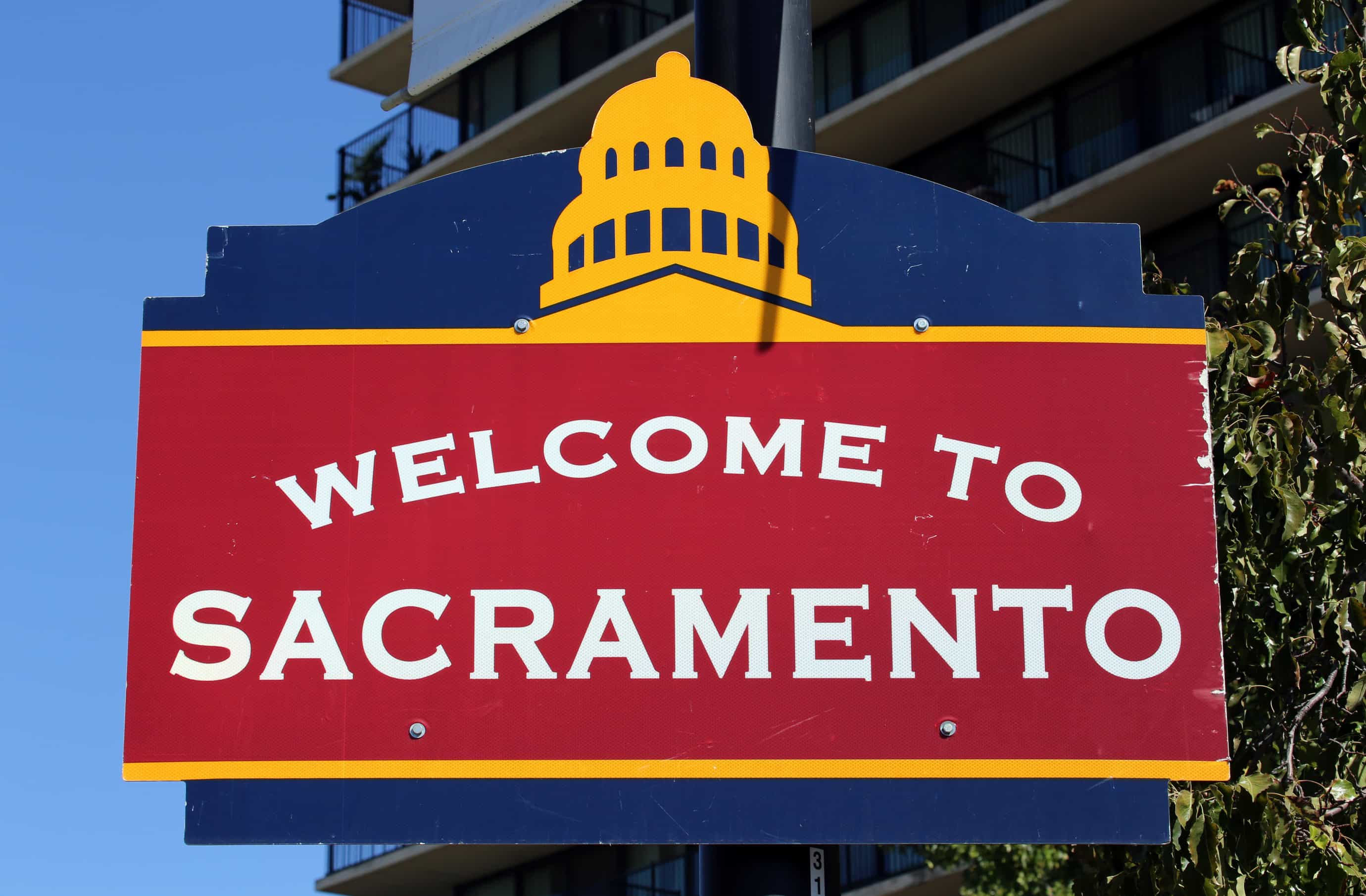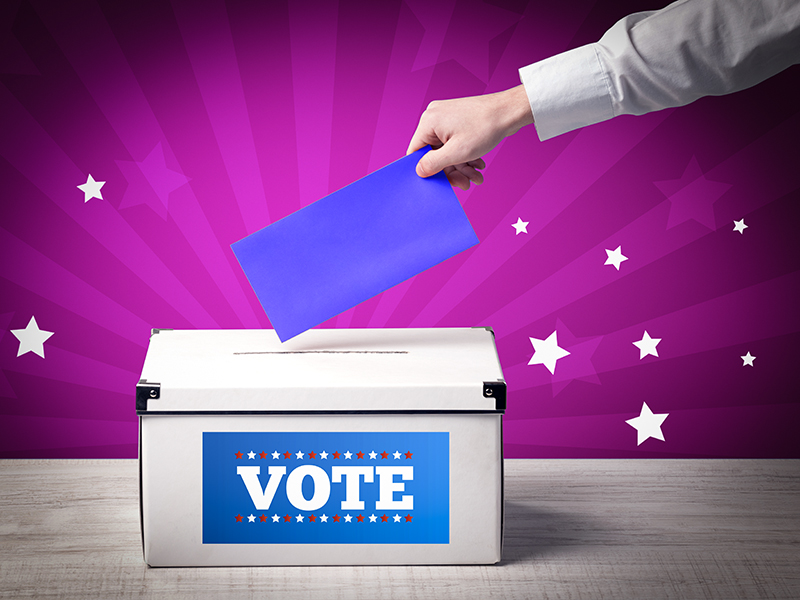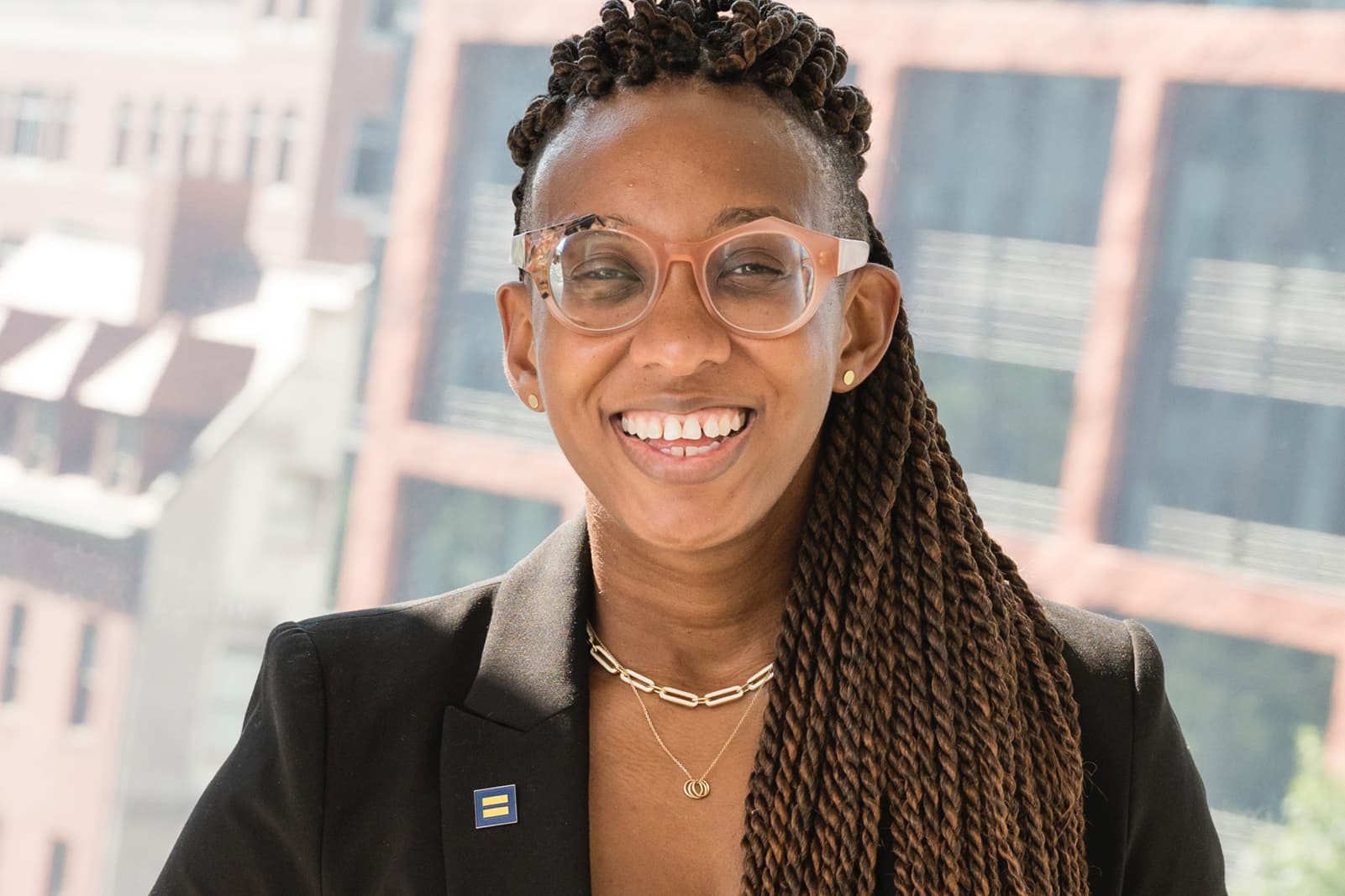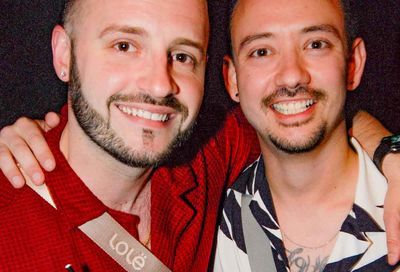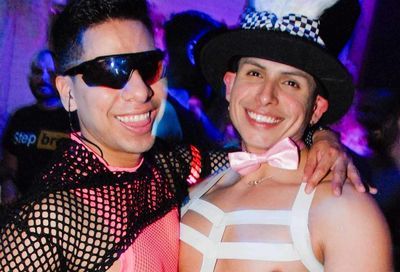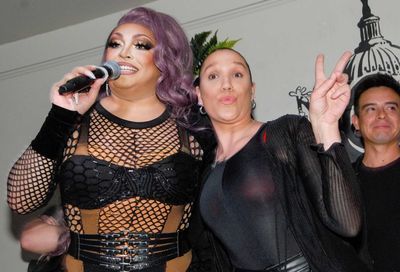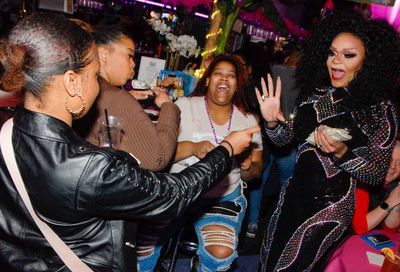Chad In Charge
After a year of historic victories, HRC's Chad Griffin sets his sights on full equality
MW: And on the marriage issue, more than 220 Republican state lawmakers have voted for same-sex marriage. It seems like it’s just starting to percolate to the top.
GRIFFIN: There have been more Democrats than Republicans, but in every one of these states we have won with Republicans and Democrats coming together to get something done. In every one of them. And I think that will increasingly be what happens in these states and in Congress.
MW: Now it seems you can’t talk about ENDA unless you talk about the executive order for federal contractors. Why don’t you think President Obama has kept his campaign promise to sign that?
GRIFFIN: Here’s all I can say to that: I don’t know why. There is no reason. I’ve never been given a reason. I don’t think anyone has been given a reason, and there is absolutely no legitimate reason that the president can’t sign the executive order providing these protections to LGBT people while Congress moves. It is not the final solution, but it is a giant step in terms of covering Americans who need the most basic protections in this country.
And one of the best examples is ExxonMobil, which takes billions and billions of taxpayer dollars, they turn around and discriminate against LGBT people. With the stroke of a pen the president could prevent Exxon from refusing to hire the LGBT person in the first place, or from firing them because they are LGBT.
This president has been an incredible leader. He has moved us forward at a pace like no other president in our history. He has most recently, in terms of the implementation of DOMA, moved at lightning pace to ensure as many Americans as possible receive the most protections that they can. But there is no reason to not sign this executive order. I and this organization have pushed privately and publicly and we will continue to do so. The pressure should be kept on the president and the White House. It’s a campaign promise that he made and there’s no good reason to not deliver on it.
MW: Some have speculated that he may not even be aware of the controversy surrounding this. When Michelle Obama was heckled about this at a fundraiser, some people wondered if she even knew what she was being heckled about. Do you think more blame should be placed on the president himself or his senior staff?
GRIFFIN: Look, at the end of the day the buck stops with the president. He is a brilliant man. I find it hard to believe he doesn’t fully understand this issue and the historical precedence for it. In the civil rights movement this is exactly what happened before there was full and complete nationalized protections – there was an executive order. I believe the White House staff and the president fully understand this issue. I believe that it’s prepared, that it’s even ready. All he needs to do is to sign it and I hope he does. Our job is to keep the pressure on.
MW: What other issues are you focused on?
GRIFFIN: There’s the political work and then there’s the foundation work.
Especially, as we talk about going into these places in the South, … you look at a particular state that has zero protections. You look at where you can advance the ball. The Corporate Equality Index, one of the greatest programs in this building, headquartered in our foundation, [shows who] provides those protections and benefits when states, municipalities and our federal government have not.
And particularly today when we have truly two Americas, for those who live in the other America where there are no protections and there are no benefits, we have companies that have been forward thinking and have been leading on this issue for a very long time, including the most conservative of American companies. We can advance and get more companies to provide such benefits, particularly those that are located across the regions in these 37 places where’s there no equality.
The Religion and Faith Program is another one. You can’t talk about this issue in the South without talking about it through a religious lens. We need more fair-minded faith leaders who stand up and are part of this. Our Religion and Faith Program is one of the programs I’m incredibly proud of.
I grew up in a faith tradition in a Southern Baptist church going to church Sunday morning, Sunday night and Wednesday night. And that’s what most people grow up with and in fact still attend church regularly in the South, including LGBT people. It’s a myth that sometimes gets created outside of the South that LGBT people aren’t people of faith, and that’s not true. The vast majority of them are people of faith. The majority of them do go to church on a regular basis and there are an increasing number of fair-minded faith leaders who are standing up to embrace equality, but we need more.
And at the same time, we need to call out those who are hypocrites and those who, quite intentionally in my view, inflict harm upon young people by spewing hate from a pulpit. There’s no law that fixes that. And that’s why the work of the faith and religion program is important and needs to grow and needs to expand.
Also, our Welcoming Schools program. People talk about the progress and young people are coming out. There are two studies, I think one has the average age at 13 and one has it at 14. I cannot fathom. It’s the healthiest thing in the world that these young people are able to come out and embrace who they are in their adolescence, but what it also does is brings about more negative attention. Folks today who are in their late 20s, 30s or 40s, when we were 12, 13, 14, 15, we were closeted. Many people were able to hide. Today, as these young people are out and open, it in many ways increases the amount of bullying that is thrust upon them. And so more needs to be done on that and our Welcoming Schools program is a great program.
All the solutions are not political. The culture shift, the changing hearts and minds, the impacting schools and folks at the work place, is work of the foundation and work that I want to elevate.
MW: It seems there are some in the movement who have criticized the focus on marriage. Do you hear those criticisms, and how do you respond?
GRIFFIN: I think they’re absolutely right. The media has focused like a laser on the issue of marriage. And this organization has in no way shifted focus away – in fact if anything we’ve increased, particularly in this last year, the focus on things like ENDA and our foundation and elevating all that work I just talked about.
It is true that there has been a media spotlight on the issue of marriage. But in many ways I think that the rising boat for marriage lifts everything else up, because it has enabled us to tell our stories.
So I’m appreciative that the media is focusing on anything positive that’s LGBT. Rewind five years ago and all you heard were the politics of these issues and 30 out of 30 ballot measures failing. That’s what you saw on TV. Over the last five years, because of marriage, you’ve been able to see on TV stories of loving couples and their families getting married or attempting to have the right to get married.
So I think the media attention, generally positive on LGBT issues, is a good thing. It is true that that same spotlight hasn’t been as bright on all the other work that’s really important. But again that’s why I just spent the time I did in these places that are far, far, far from having marriage. It is true that there has been the increased spotlight on marriage, but I think as a whole it benefits the community across the board.
MW: If we ever get to that point where all the laws are passed, what happens to an organization like HRC?
GRIFFIN: I don’t think the right question is if, the question is when. I can tell you we are going to fight like hell until we get to that day and we’re not stopping until we get to that day.
Now, once you’re there you have to look back at the lessons of the civil rights movement. Once all of the laws were in place, it was still a very long time before municipalities in states actually caught up to what the laws were. And it didn’t mean, for instance, that African-Americans were treated equally where they live. I was in the courtroom as that horrific and tragic decision was read as it relates to the Voting Rights Act. The struggle will not be over when we achieve legal equality. We will still have a long ways to go and, again, looking at the parallel of the civil rights movement, once technically legal equality had been achieved, there was still struggle after struggle after struggle.
MW: HRC was one of more than 30 LGBT organizations to sign on to a letter calling for justice for Trayvon Martin. Obviously there are some in the LGBT community who have a different take on that case and who support George Zimmerman and some have argued LGBT organizations have no place getting involved in such a case. It’s similar to arguments I’ve heard about the Bradley Manning case. Aside from sexual-orientation and gender-identity issues, do you think the LGBT movement has a political culture?
GRIFFIN: I don’t know about a political culture. I do think our movement has done a great job over the last few years of working in coalition and collaboration with organizations that are not seen as traditional LGBT organizations. We had fantastic partnerships this last election. In fact, perhaps a key ingredient to victory was partnerships with, for instance, Ben Jealous and the NAACP, particularly in Maryland.
So there are a lot of examples where our movement has done a great job of partnering and finding places where you have crossover, where you have agreement on particular issues, where you can come together, work together, whether it’s bipartisan with Republicans and Democrats or using that same model as it relates to other organizations in the country that can agree on this. And I think that statement speaks for itself and it was urging the Justice Department to do its due diligence and adequately look at that case and ensure justice to the extent it can be and should be delivered and I wouldn’t add anything other than what was in the statement.
MW: To go back, what were you doing and what was your reaction when you found out the stay on marriages in California had been lifted much earlier than anyone had quite anticipated?
GRIFFIN: [Laughs.] We were on our way to San Francisco to see a play produced by Bruce Cohen, I Am Harvey Milk. Then there started to be this rumor that was spreading about that the Ninth Circuit was going to be doing something as it relates to our case. No one knew what.
We had been ready for our plaintiffs to get married since we thought the Supreme Court was going to deny cert so, literally, we had mapped out to the grandest of detail to make sure our plaintiffs could be the first couples to get married so the narrative we’ve had for the last four and a half years could continue into the public dialogue. And so when we heard that, we put everything into place for those weddings to be able to happen.
The moment I actually found out that the Ninth Circuit’s decision was what it was, in terms of dissolving the stay, I had just landed in San Francisco and was in a car with Dustin Lance Black and an HRC staffer. And I get the call and had it on speakerphone and Lance and I just yelped and hugged one another and then we raced — we had the car literally race to City Hall, where, as the rumor spread, our plaintiffs were already nearby. Unfortunately there wasn’t enough time to gather family, so, sadly, only one of Kris and Sandy [Stier]’s four kids was close enough. Paul [Katami] and Jeff [Zarrillo] unfortunately weren’t able to have any of their family in L.A. We were able to call [California Attorney General] Kamala Harris and have her come over and do the wedding in San Francisco and have [Los Angeles Mayor] Antonio Villaraigosa on his last day in office do it in L.A.
For an hour or so we knew there was a chance of it, but there had been so many technical things in this case so we had no idea what it was going to be.
We jumped out of the car and met the plaintiffs at the top of the steps and together we go through security and a few people start noticing it’s the plaintiffs. And word starts to spread in San Francisco City Hall. And then the applause and the roar goes from three people to 10 people to 20 people, and then you can feel it going throughout the levels of San Francisco City Hall. Then we get to the door of the clerk’s office.
There were only about eight of us there at first. Every second that went by it grew to the point people were standing on top of the desk. And then there was the added drama when we had team members with Paul and Jeff in L.A. at the clerk’s office and that clerk wouldn’t issue the marriage license initially, saying they hadn’t received the ultimate order. So I’m standing next to Kamala Harris and she gets on the phone and she orders the clerk to start issuing marriage licenses. It was this cool moment because it was the first time you heard verbally the order of what was about to happen.
I have to say perhaps the most powerful moment for me was that Sunday after the Pride Parade. [Dustin Lance Black, AFER Executive Director Adam Umhoefer, Cleve Jones] and me went into City Hall and were just looking around. It was the first time things were really starting to sink in. We just stood there and watched strangers, people I never met and most I’ll never meet, get married.
There was this incredible lesbian couple I met who had been together for a dozen years and they had their child with them and they were getting married by a federal judge. Cleve ended up being their witness and I was their wedding photographer. And we all had tears in our eyes.
We were watching people we had never met before enjoy what is the most basic of rights. That was probably the first time for me the magnitude of what happened really sunk in.
For more information about the Human Rights Campaign, call 202-628-4160 or visit hrc.org.
Support Metro Weekly’s Journalism
These are challenging times for news organizations. And yet it’s crucial we stay active and provide vital resources and information to both our local readers and the world. So won’t you please take a moment and consider supporting Metro Weekly with a membership? For as little as $5 a month, you can help ensure Metro Weekly magazine and MetroWeekly.com remain free, viable resources as we provide the best, most diverse, culturally-resonant LGBTQ coverage in both the D.C. region and around the world. Memberships come with exclusive perks and discounts, your own personal digital delivery of each week’s magazine (and an archive), access to our Member's Lounge when it launches this fall, and exclusive members-only items like Metro Weekly Membership Mugs and Tote Bags! Check out all our membership levels here and please join us today!




